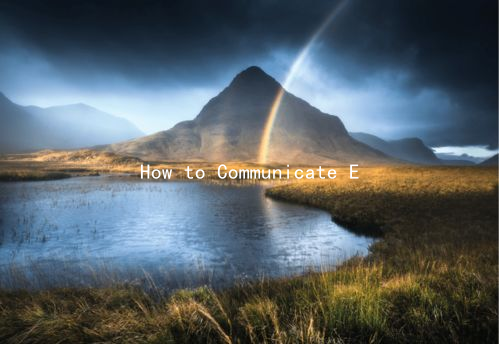The Art of Romantic Dialogue: Enhancing Your Emotional Vocabulary
In the realm of romantic relationships, effective communication serves as the backbone of connection and intimacy. While physical attraction and shared interests are important, the ability to express thoughts and feelings can deepen bonds and foster understanding. This article explores the art of romantic dialogue, offering insights into enhancing your emotional vocabulary to enrich your relationships.
Understanding Emotional Vocabulary
Emotional vocabulary refers to the specific words and phrases we use to articulate our feelings and experiences. For many, expressing emotions can be challenging; we often resort to generic terms like happy, sad, or angry. However, a rich emotional vocabulary allows for nuanced communication, helping partners articulate their feelings more effectively. Instead of simply saying, I feel sad, one might say, I feel disheartened and vulnerable. Such specificity gives your partner a clearer picture of your emotional state.
Active Listening: A Key Component
Before diving into expressive dialogue, it’s crucial to cultivate active listening skills. Active listening involves fully concentrating on what your partner is saying rather than formulating a response while they speak. This practice fosters a safe environment where both partners feel heard and understood. By validating each other’s emotions and making thoughtful responses, you create a dialogue where feelings can be exchanged openly.
Ask Open-Ended Questions
To encourage deeper conversations, try asking open-ended questions. These types of inquiries require more than a simple “yes” or “no” answer, inviting your partner to share their thoughts and feelings in greater detail. For example, instead of asking, “Did you have a good day?” try “What was the highlight of your day?” This approach not only opens the door to more meaningful exchanges but also reflects your genuine interest in your partners experiences.
Using I Statements
When discussing feelings, frame your thoughts using I statements rather than you statements. This technique helps focus on your own feelings and reduces the likelihood of your partner becoming defensive. For instance, instead of saying, “You never listen to me,” try expressing, “I feel overlooked when my thoughts aren’t acknowledged.” This shift in language promotes understanding and opens the floor for constructive dialogue.

Expressing Appreciation Regularly
Romantic dialogue should not be limited to addressing conflicts or issues. Regularly expressing appreciation and affection enhances emotional connection. Simple phrases like “I love how you always know how to make me laugh” or “I appreciate your support during difficult times” can make a significant impact. Such conversations nurture positivity and solidify your bond.
Be Vulnerable
While it may feel daunting, showing vulnerability can be a powerful tool in romantic dialogue. Sharing your fears, dreams, and insecurities fosters intimacy and trust. When you allow your partner to see the more vulnerable aspects of yourself, it encourages them to do the same, paving the way for a deeper emotional connection.
Practice Empathy
Empathy is the ability to recognize and understand another persons emotions. Practicing empathy in your exchanges enriches your romantic dialogue. Try to put yourself in your partner’s shoes and genuinely attempt to understand their feelings. Phrases like “I can see that youre feeling overwhelmed” or “It sounds like that was really difficult for you” can demonstrate your empathy and create a supportive dialogue.
Conclusion
The art of romantic dialogue lies in the ability to communicate effectively and authentically. By enhancing your emotional vocabulary, practicing active listening, asking open-ended questions, using I statements, expressing appreciation, embracing vulnerability, and exercising empathy, you can transform your conversations. Ultimately, fostering open and honest dialogue not only enhances understanding but also strengthens the emotional ties that bind you and your partner, leading to a more fulfilling and vibrant relationship.





